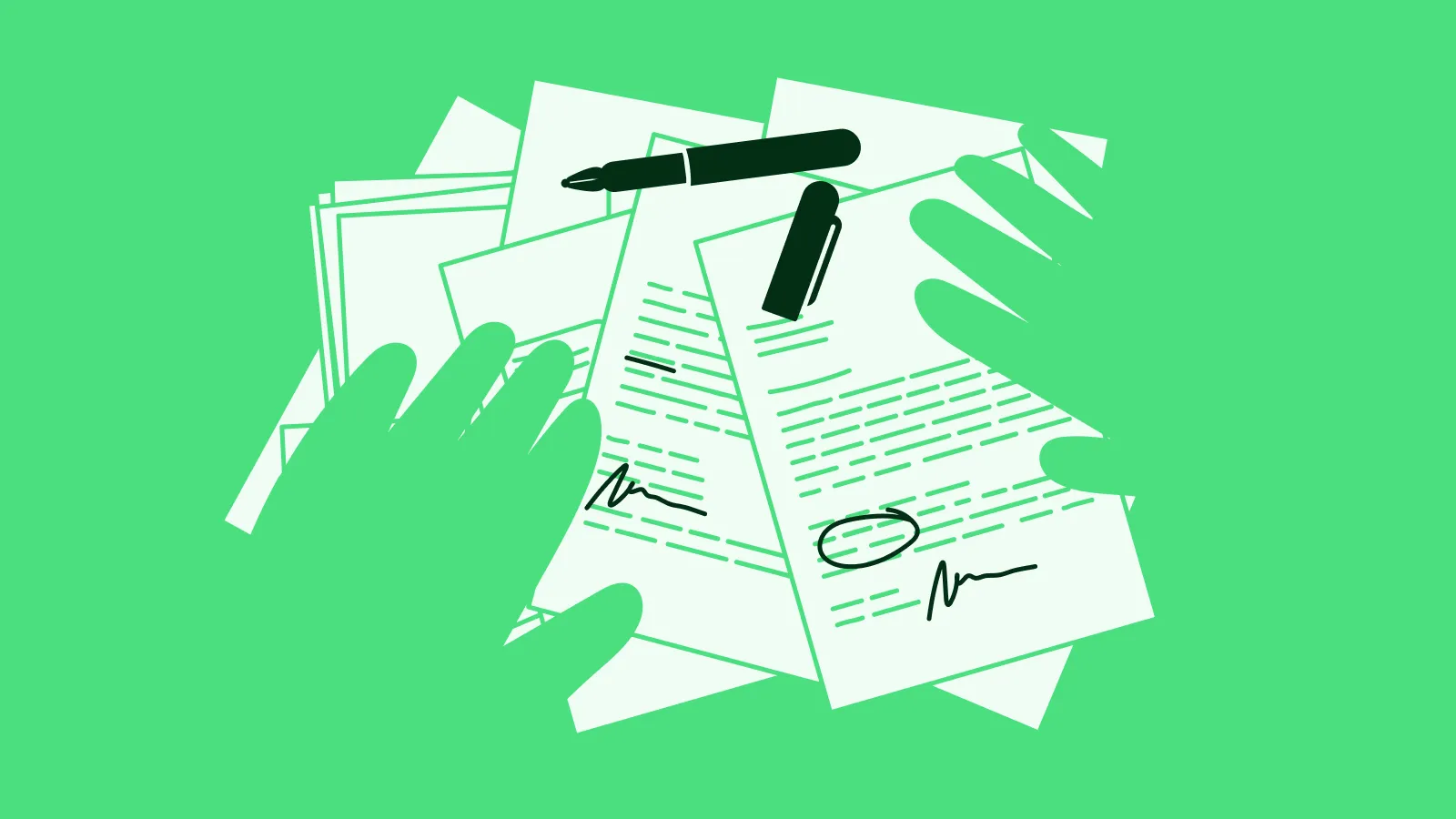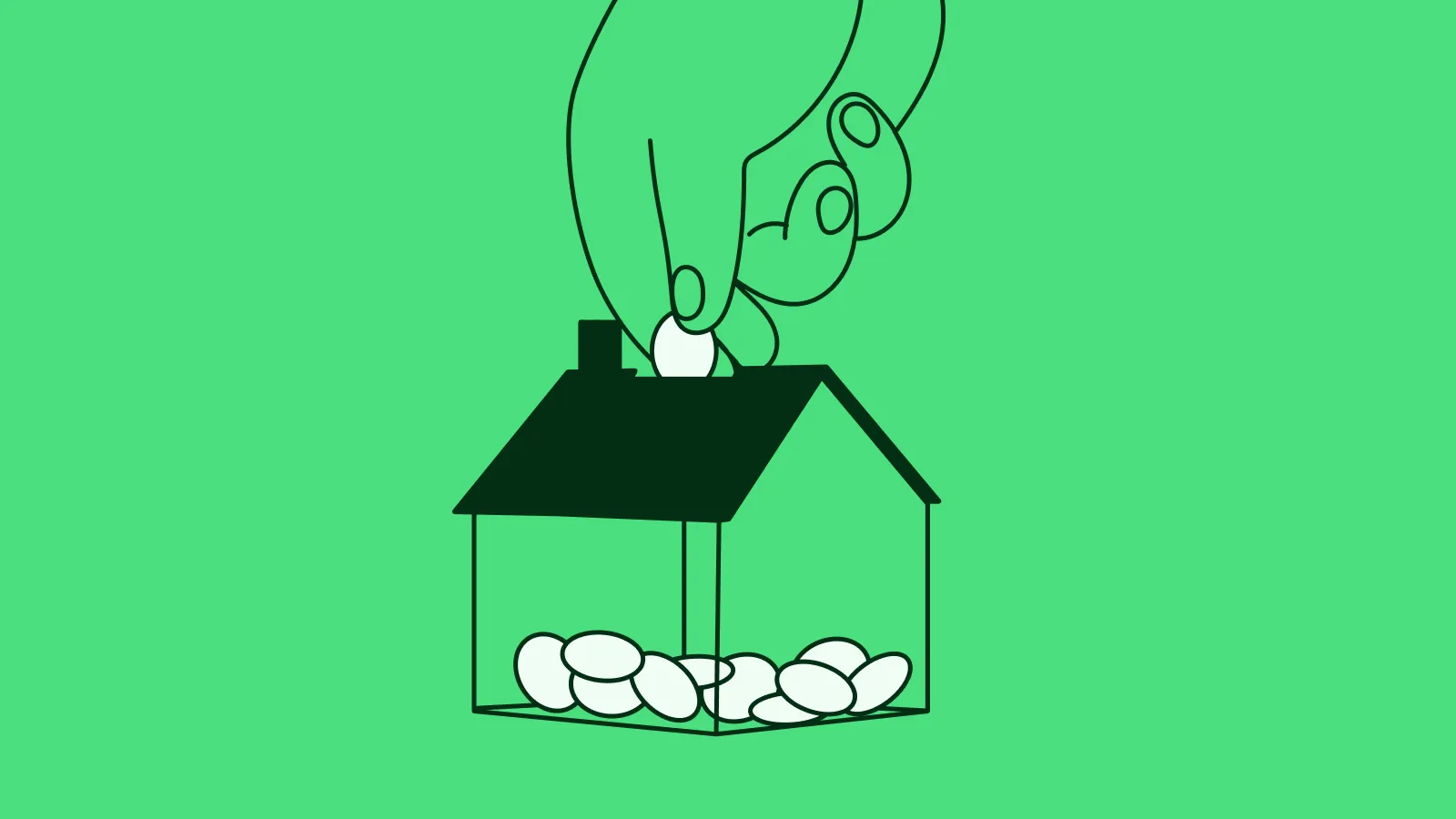No-Deposit Mortgages
Find out how a lack of savings doesn’t have to put the brakes on your dreams of owning a home.
Your home may be repossessed if you do not keep up repayments on your mortgage.
Exclusive broker partner to

Author: Michael Whitehead, Head of Content
Reviewer: Paul Coss, Haysto Co-Founder and Chief Customer Officer
Updated: Nov 17 2025 8 mins
A no-deposit mortgage (or 100% mortgage) is a loan that covers the full purchase price of a property, meaning you don’t put down any of your own cash towards the value of the home. In theory, that sounds ideal: no need to wait years to save up a deposit.
In practice, 100% mortgages are extremely rare, with the vast majority of mortgage lenders having placed them firmly in the ‘too risky’ category since the 2007-08 financial crisis. However, more recently, a small number of 100% mortgage products have become available, marking a cautious revival.
Read on to learn more about whether you may be eligible and what alternative routes are available.
Quick Summary:
100% mortgages are available: While rare, a mortgage with no deposit is possible through very specific deals, most of which require strong evidence of consistent, on-time rent payments.
Family support can help: One way to get a no deposit mortgage is through family-backed schemes, such as a Guarantor Mortgage or a Family Offset Mortgage, where a relative provides additional security.
They come at a cost: Since a 100% mortgage is high-risk for the lender, the interest rates are generally higher than a deal where you put down even a small deposit.
Negative equity risk: Because you borrow the full property value, you face a higher risk of negative equity if house prices fall, meaning you could owe more than your home is worth.
Bad credit could be a barrier: You typically need a pristine credit history to qualify for a 100% mortgage. If you have adverse credit, you'll likely need to save a larger deposit (10-15% or more).
Can You Get a Mortgage with No Deposit?
Yes, it’s possible, but the options are highly limited and typically involve finding external support, often from family. Unlike standard mortgages that require a minimum 5% deposit, no deposit mortgages are 100% loan-to-value (LTV) products, covering the full purchase price of a property.
The options generally fall into two categories:
A select few market-wide 100% mortgages for renters
Family-backed schemes.
The common feature of both is that the lender needs significant reassurance, typically in the form of proven affordability or collateral (security), because they are taking on 100% of the risk.
Lenders see a deposit as a sign of financial discipline and a cushion against house price drops. By removing that cushion, they need iron-clad proof that you can afford the monthly repayments and that you have a solid financial track record, especially in paying rent and other household bills on time. This is why eligibility criteria for 100% mortgages are often very strict.
Can a First-Time Buyer Get a 100% Mortgage?
Yes, most 100% mortgages are aimed squarely at first-time buyers and those who have not owned a property in several years. Since the return of truly deposit-free mortgages to the market in 2023, the focus has been on helping reliable renters transition into homeownership.
One of the most notable no-deposit mortgages available requires applicants to demonstrate a strong track record of paying rent on time for at least 12 consecutive months. This shows the lender that you have the financial stability to handle mortgage payments that are often comparable to, or slightly higher than, your current rent.
For schemes that rely on family help, such as guarantor or family offset options, the borrower does not need to be a first-time buyer; however, these schemes are overwhelmingly used by those struggling to raise a deposit. The key is that the property must be your main residence, and not a buy-to-let or second home.
How Much Can You Borrow for a No-Deposit Mortgage?
The amount you can borrow depends on your income and outgoings, not the fact that you’re using a 100% mortgage. Lenders still apply their standard affordability rules, typically offering a loan based on 4.5 to 5 times your annual income, and your total borrowing cannot exceed the property value.
For the new renter-focused no-deposit mortgages, lenders often use your history of paying high rent as proof you can afford the repayments. This can sometimes allow you to borrow more than a standard income multiple, provided your total monthly outgoings are low.
Here are a series of examples of how much you could borrow, based on typical income multiples:
Applicant Annual Income | Typical Income Multiple | Max Potential Borrowing (100% Mortgage) |
|---|---|---|
£30,000 (Sole Applicant) | 4.5 times | £135,000 |
£50,000 (Sole Applicant) | 5 times | £250,000 |
£65,000 (Joint Applicants) | 4.5 times | £292,500 |
£80,000 (Joint Applicants) | 5 times | £400,000 |
Remember that this is a starting point. Every lender will assess your debts, dependents, credit history and how you’ve managed your other financial commitments to determine the exact amount you can truly afford to pay each month.
If the property you want costs more than what your income supports, you’ll hit affordability limits, regardless of how much deposit you have.
To see how this might work out for you, based on your annual income, take a look at our quick and easy-to-use affordability calculator.
Potential property value:
Your deposit:
You could borrow:
Based on x your income at £, plus your deposit of £.
Speak with one of our experts today to learn more about your options.
Get Started NowThis calculator provides an estimate of how much you may be able to borrow for a mortgage based on the information you have entered. The figures are for illustrative purposes only; the actual amount you can borrow may differ, and this does not constitute either a mortgage offer or a mortgage in principle (MIP).
Your home may be repossessed if you do not keep up repayments on your mortgage.
You can also use our mortgage repayment calculator below to see what the amount you're looking to borrow could cost you each month and check if this fits with your budget.
Mortgage Type
With a repayment mortgage you repay all the capital and interest during the term. For interest-only, you only repay the interest amount each month and the capital is repaid in full at the end of the term.Your monthly repayment:
Total amount repayable:
Total interest payable:
Speak with one of our experts today to learn more about your options.
Get Started NowThis calculator provides an estimate of your monthly mortgage repayments based on the information you have entered. The figures are for illustrative purposes only, your actual payments may differ, and this does not constitute a mortgage offer.
Your home may be repossessed if you do not keep up repayments on your mortgage.
Are They More Expensive?
Yes, the short answer is that 100% mortgages are more expensive than deals where you put down a deposit. This is a fundamental principle of mortgage lending, as a smaller deposit means a higher risk for the lender.
Interest rates are calculated based on the loan-to-value (LTV) ratio. The lower the LTV (the bigger your deposit), the lower the interest rate tends to be. Since a no-deposit mortgage is 100% LTV, it sits in the highest risk bracket, meaning you pay a premium in interest.
While the monthly payments might be comparable to what you pay in rent now, the interest rate on a 100% deal will almost certainly be higher than if you had saved up even a small 5% deposit. Over the full term of the mortgage, this can add more interest to the total cost of the loan. However, for some buyers, paying slightly more in interest is worth it to get on the ladder years sooner.
Why Pick Picnic?
With access to thousands of mortgage products, easy-to-use technology, and 100+ experts, our award-winning service is with you every step of the way.
Your home may be repossessed if you do not keep up repayments on your mortgage.
What Are the Pros and Cons of 100% Mortgages?
Choosing a mortgage with no deposit is a bold move. It comes with some significant benefits, but also certain risks you need to fully understand before committing.
Why They’re a Great Idea:
Get on the property ladder sooner: The biggest advantage is that you can stop paying rent and start building your own equity immediately, without years of saving.
Avoid rising house prices: You can buy now, potentially locking in a price before house values increase further and price you out of the market.
Lower upfront cash costs: Your main cash output will be for legal (conveyancing) fees and Stamp Duty (if applicable), not the hefty deposit.
Potential to remortgage later: As you pay down the loan and property values rise, you build equity, allowing you to remortgage onto a cheaper, lower-LTV deal in the future.
What You Need to Think About:
Higher interest rates: 100% mortgages fall into the highest risk category for lenders, resulting in a higher interest rate that makes the loan more expensive overall.
Risk of negative equity: If property prices fall, you could owe more to the lender than the home is worth. This situation, known as negative equity, can trap you in the property, making it difficult or impossible to remortgage or sell.
Strict eligibility rules: These deals are limited. Applicants must demonstrate an impeccable history of paying bills and rent, making them harder to qualify for than low-deposit options.
Reliance on family (for some schemes): Guarantor or family security schemes put a loved one's savings or property at risk, which can be a significant commitment for them.
What Are the Alternatives?
If you don't qualify or want a more affordable option than a 100% mortgage, there are excellent alternatives that can reduce the upfront cash required.
Family-Backed Mortgages
These schemes are the most common way to get a mortgage with no deposit or a very small one. They don’t require you to save a deposit, but instead ask a relative (usually a parent) to provide security for the loan. This can be done in two main ways:
Savings as Security (Family Offset): A family member puts a percentage of the property value (e.g., 10%) into a savings account held by the lender for a fixed period (often 3-5 years). This cash serves as security, yet it still earns interest for the family member.
Guarantor Mortgages: A family member legally agrees to cover your repayments if you fall into financial difficulty. This may involve using equity in their own home as security.
Low-Deposit Government Schemes
While not strictly no-deposit mortgages, these options require a minimal 5% deposit and come with lower rates than a 100% LTV deal.
Freedom to Buy Scheme: A government-backed scheme that encourages lenders to offer 95% LTV mortgages. This is open to both first-time buyers and home movers.
Shared Ownership: You buy a share of a property (e.g., 25% to 75%) and pay rent on the rest, meaning your deposit is based on the small share you buy, not the full property value.
Can You Get a No-Deposit Mortgage with Bad Credit?
This would be extremely challenging. No-deposit mortgages are inherently high-risk products, and to qualify for them, lenders typically require applicants to have a solid credit history. The stricter criteria for these deals often mean that even minor credit issues, such as a single missed payment, can lead to rejection.
If you have bad credit, even with a deposit, your best route is usually through a specialist lender who is set up to look beyond your credit score. These specialist lenders usually require a bigger deposit (often 10% to 15% minimum) to offset the risk associated with your credit history.
As specialist lenders don’t typically have a presence on the high street, it’s far better to work with a mortgage broker who has existing relationships with them (like us!) and understands how to get these types of applications accepted.
Why Pick Picnic for Your 100% Mortgage?
No-deposit mortgages are still quite rare, with a limited number of lenders offering them. Finding the right 100% mortgage deal on your own could be a challenging and time-consuming process. Having an experienced mortgage broker on your side - like us! - makes things much easier and more efficient.
With access to these types of mortgage products, easy-to-use technology, and 100+ experts, our award-winning service is with you every step of the way. Here’s how we can help:
Finding you the best no-deposit mortgage deals: Our mortgage team will already know which lenders are currently offering the most competitive rates for this type of home loan. They can compare the current 100% mortgage deals available to find the one that’s right for your circumstances.
Your mortgage, made simple from start to finish. Our online portal allows you to track your mortgage application step-by-step, sign and upload documents in seconds, and contact your mortgage team at any time. No back-and-forth emails. No printing. No guesswork. Everything you need, all in one place, so you can stay organised and in control of your mortgage journey.
Making mortgages possible, whatever the circumstances: Our team of advisors have a clear understanding of the eligibility criteria used by each lender and will identify the one that's best placed to help. Our sister brand, Haysto, specialises in helping customers who've been turned away elsewhere. For anyone with a complex income or adverse credit record - we’re here to support you!
Start Your Mortgage Journey with Picnic!
Whether you need a full 100% mortgage, are exploring a guarantor scheme, or need help finding the best interest-rate deal, our team of experts can help you.
We’ll compare all the options available that match your requirements, including specialist deals you won’t find on the high street, ensuring you have the confidence to make your next move. Get in touch with us to get started!
Related Pages
The Picnic Guide To Buying a Home

How Conveyancing Works

How Stamp Duty Works

Choosing Your Mortgage

Speak to One of Our Experts
First or next move, remortgaging or investing - get clear advice from our award-winning experts to help you find the right mortgage.
Your home may be repossessed if you do not keep up repayments on your mortgage.